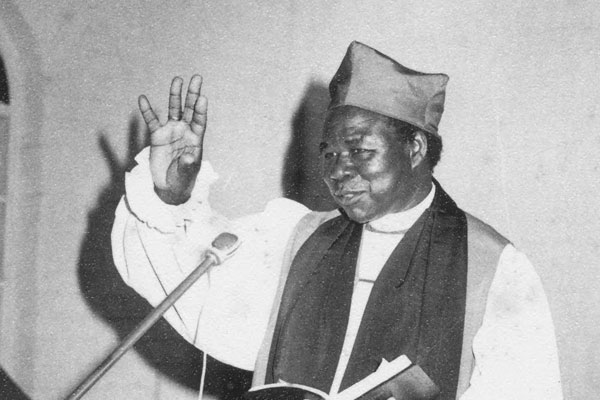
18:9 He also told this parable to some who trusted in themselves that they were righteous, and treated others with contempt: 10 “Two men went up into the temple to pray, one a Pharisee and the other a tax collector. 11 The Pharisee, standing by himself, prayed thus: ‘God, I thank you that I am not like other men, extortioners, unjust, adulterers, or even like this tax collector. 12 I fast twice a week; I give tithes of all that I get.’ 13 But the tax collector, standing far off, would not even lift up his eyes to heaven, but beat his breast, saying, ‘God, be merciful to me, a sinner!’ 14 I tell you, this man went down to his house justified, rather than the other. For everyone who exalts himself will be humbled, but the one who humbles himself will be exalted.”
– Luke 18:9-14
It is often said that Ash Wednesday is the threshold over which we step into the season of Lent. In generations past, it seemed Christians knew more about what they were stepping into! Today, society as a whole pays no attention to Ash Wednesday and Lent and this inattention is reflected in the lives of many Christians as well. Ash Wednesday may be even more neglected this year, given the pandemic and the reality that many are still not worshiping “in-person.” Some congregations are not offering Ash Wednesday services so that many Lutherans may slip past Ash Wednesday without realizing it.
Sadly, this distancing from the rhyme and rhythm of the church year may keep us from hearing again that stark, solemn reminder, spoken to Adam by the Lord God, “you are dust and to dust you shall return.” (Genesis 3:19). Normally, these words call us to repentance and return during Lent, as we come face to face with the shortness and frailty of human life. However, the reading above serves the same purpose, as Jesus tells a parable about men who “trusted in themselves” and treated others with contempt. He contrasts those with the tax collector who knows himself to be a sinner, unwilling to even lift his eyes to heaven, praying simply, “God, be merciful to me, a sinner!”
Ash Wednesday (and Lent) are about coming to grips with our own sinfulness, realizing and acknowledging that we cannot justify or trust in ourselves, so that we turn, anew, to our Lord and Savior, Jesus Christ, who died and was raised for us — that we might be forgiven, saved and redeemed by God’s grace. The journey of Lent is intended to create and renew in us a “broken and contrite heart” (Psalm 51:17), humility in the presence of God and others which causes us to see our need for a Savior, yield to Him as our Lord and God — responding by loving and serving our neighbor. In this sense, Ash Wednesday and Lent are a
re-orientation of our hearts and lives as our eyes are turned, once again, away from the many things, toward the one thing which is needful, Jesus Christ (John 10:42)!
May Ash Wednesday and Lent find us humbly sitting at the feet of Jesus by way of these brief daily devotions, with renewed focus on our Savior and Lord!
Prayer: God, be merciful to me, a sinner!
Lenten Response: Make the sign of the cross on your forehead as a remembrance.
Devotion written by the Rev. Dr. David Wendel
Morning Psalms
Evening Psalms
Janani Luwum, Archbishop of Uganda and Martyr, 1977 (February 17)

About the Commemoration
Janani Jakaliya Luwum was born in 1922 to Acholi parents in Mucwini, Uganda, near the Sudanese border. After his early years as a teacher and lay reader in Gulu, he was sent to St. Augustine’s College, Canterbury. He was ordained as a priest in 1956 and returned to Uganda to assume responsibility for twenty-four congregations. After several years of service that included work at a local theological college, Luwum returned to England on scholarship for further study at the London College of Divinity.
In 1969, Luwum became Bishop of Northern Uganda, where he was a faithful visitor to his parishes as well as a growing influence at international gatherings of the Anglican Communion. In 1974, he was elected Archbishop of the Church of Uganda, Rwanda, Burundi, and Boga-Zaire.
Luwum’s new position brought him into direct contact and eventual confrontation with the Ugandan military dictator, Idi Amin, as the archbishop sought to protect his people from the brutality of Amin’s regime. In August of 1976, Makerere University was sacked by government troops. With Archbishop Luwum as their chair, the Christian leaders of the country drafted a strong memorandum of protest against officially sanctioned rape and murder.
In early February 1977, the archbishop’s residence was searched for arms by government security forces. On February 16th, President Amin summoned Luwum to his palace. He went there, accompanied by the other Anglican bishops and by the Roman Catholic cardinal archbishop and a senior leader of the Muslim community. After being accused of complicity in a plot to murder the President, most of the clerics were allowed to leave. However, Archbishop Luwum was ordered to remain behind. As his companions departed, Luwum said, “They are going to kill me. I am not afraid.” He was never seen alive again. The following day the government announced that he had been killed in an automobile accident while resisting arrest. Only after some weeks had passed was his bullet-riddled body released to his family for burial.
Early in his confrontation with the Ugandan government, Archbishop Luwum answered one of his critics by saying, “I do not know how long I shall occupy this chair. I live as though there will be no tomorrow…While the opportunity is there, I preach the gospel with all my might, and my conscience is clear before God.”
Excerpts from Lesser Feasts and Fasts 2018.
See also: Janani Luwum
Propers
O God, whose Son the Good Shepherd laid down his life for his sheep: We give you thanks for your faithful shepherd, Janani Luwum, who after his Savior’s example gave up his life for the sake of his flock. Grant us to be so inspired by his witness that we make no peace with oppression, but live as those who are sealed with the cross of Christ, who died and rose again, and now lives and reigns with you and the Holy Spirit, one God, for ever and ever. Amen.
LFF
Readings: Ecclesiasticus 4:20–28; Psalm 119:41–48; John 12:24–32
Preface: Holy Week (BCP)
Color: Red

This daily prayer and Bible reading guide, Devoted to Prayer (based on Acts 2:42), was conceived and prepared by the Rev. Andrew S. Ames Fuller, director of communications for the North American Lutheran Church (NALC). After a challenging year in the midst of the COVID-19 pandemic, we have been provided with a unique opportunity to revitalize the ancient practice of daily prayer and Scripture reading in our homes. While the Reading the Word of God three-year lectionary provided a much-needed and refreshing calendar for our congregations to engage in Scripture reading, this calendar includes a missing component of daily devotion: prayer. This guide is to provide the average layperson and pastor with the simple tools for sorting through the busyness of their lives and reclaiming an act of daily discipleship with their Lord. The daily readings follow the Lutheran Book of Worship two-year daily lectionary, which reflect the church calendar closely. The commemorations are adapted from Philip H. Pfatteicher’s New Book of Festivals and Commemorations, a proposed common calendar of the saints that builds from the Lutheran Book of Worship, but includes saints from many of those churches in ecumenical conversation with the NALC. The introductory portion is adapted from Christ Church (Plano)’s Pray Daily. Our hope is that this calendar and guide will provide new life for congregations learning and re-learning to pray in the midst of a difficult and changing world.
